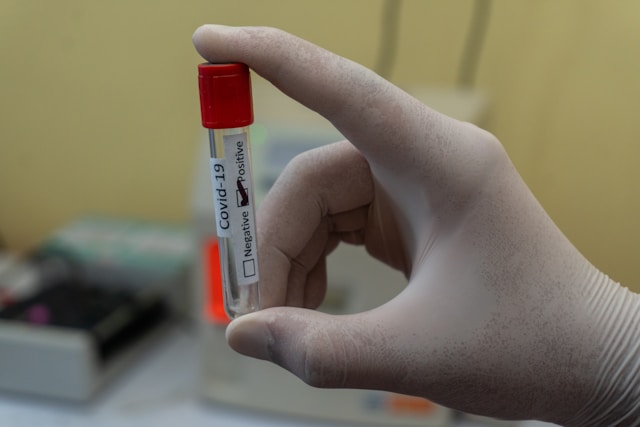Research highlights the damage to the brain’s “control centre,” potentially explaining persistent breathlessness, fatigue, and anxiety post-covid.
Severe COVID-19 infections may inflame the brainstem, a crucial structure that regulates breathing, heart rate, and blood pressure, according to recent research. This inflammation may help explain the lingering breathlessness, fatigue, and mental health issues reported by many patients, especially those with long-term COVID-19.
Researchers from the University of Cambridge used high-resolution 7 Tesla MRI scanners to examine the brains of 30 individuals hospitalized with severe COVID-19 early in the pandemic. The scans revealed inflammation and microstructural abnormalities in the brainstem, which persisted for over six months in some cases.
Embed from Getty ImagesDr Catarina Rua, the lead neuroscientist on the study, said, “The fact that we see abnormalities in the parts of the brain associated with breathing strongly suggests that long-lasting symptoms are an effect of inflammation in the brainstem following COVID-19 infection.”
The study, published in Brain, did not specifically examine patients with long Covid, but the findings raise questions about whether similar brainstem changes might explain the chronic symptoms experienced by long Covid sufferers. Long Covid, affecting millions worldwide, is marked by prolonged symptoms like breathlessness and fatigue.
The researchers found that patients with higher levels of brainstem inflammation experienced more severe physical symptoms and greater levels of depression and anxiety. Paul Mullins, a neuroimaging expert from Bangor University, noted that while the study doesn’t conclusively identify a treatment for long-term COVID-19, it highlights the importance of controlling inflammation during initial COVID-19 infection to potentially reduce long-term impacts.
This new understanding offers a potential avenue for future research into both the causes of long-term COVID-19 and ways to mitigate its debilitating effects.
